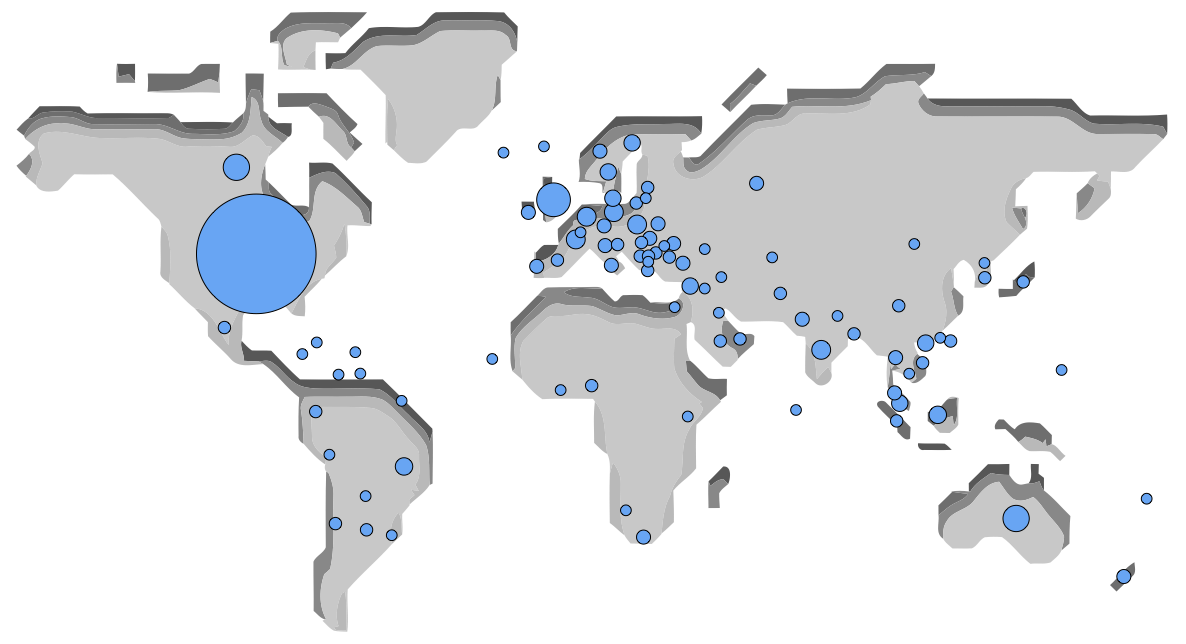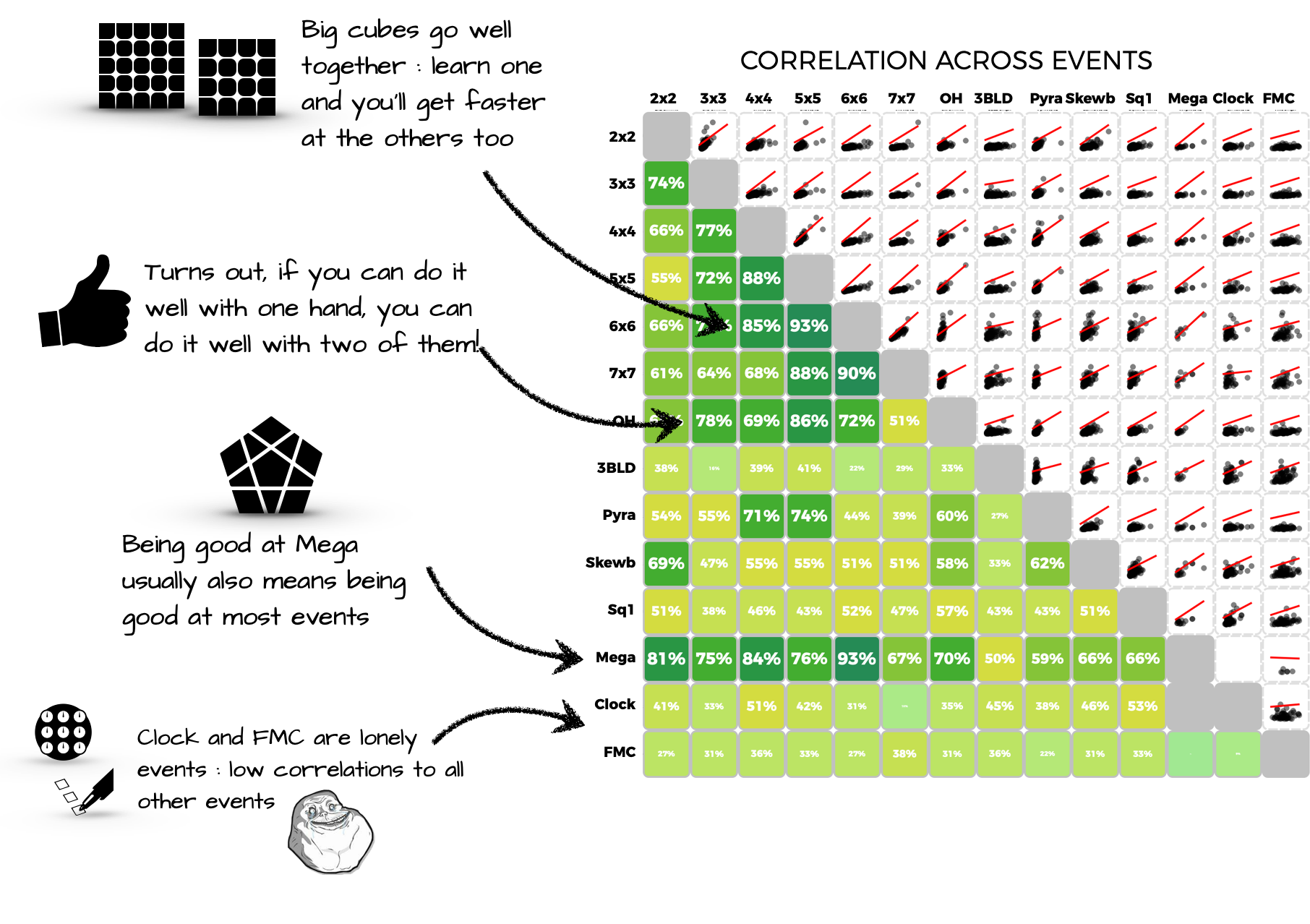Learning from ourselves, Again!
You did it again : you opened up your devices
of preference from everywhere in the world, filled in a VERY
LONG survey, and allowed us to analyse many, many facets of
our cubing habits, skillsets, preferences and hoarding
syndromes, which we've put together and set onto digital pages
for you to see. Here's a couple of highlights, and HERE's
the 90+ pages of complete analysis on how and why we cube.Acknowledgements
This project is the brainchild of the r/Cubers
subreddit mods, who for the past several years have been
running this megasurvey. Special thanks to the speedsolving.com
mods for spreading the word and the link to the survey and
having their bit of the community participate, and to
Shawn Boucke ("SpeedCubeReview") for going through the analysis
with a fine-toothed comb, checking and correcting things,
providing his insights and asking questions that helped improve
the document so much! And finally thanks to Ming Dao Ting
("Tingman") for aiming his laser eyes on this and summarising in
his own way something that would normally take a long time to
digest!
The TLDR
This article is already a TLDR to the 92-pages deck that
presents the entire data but if our attention span demands an
even shorter summary, we probably shouldn't be reading this
anyway. Nevertheless here we go:

Find here the full analysis (PDF)
Our data

How fast are we?

What do we practice?
Very few of us stick to a single event, more than half of us
practice at least 3. Almost all of us do 3x3, and then we either
go up or down, with 2x2 and 4x4 being tied for second place for
most practiced events besides 3x3. Being good at one puzzle
usually translate into being good at others, with the most
successful combinations big cubes (4x4 through 6x6) and One-Handed
3x3.
How did we learn?


My Precious...

We have a tendency to hoard puzzles, with most of us possessing 20 puzzles, sometimes hundreds. Some of us still have a soft spot for the originals, while others prefer last years' puzzle. We like our hardware magnetic, and with adjustable settings, and some of us like to modify or print our cubes, to turn them into more challenging or different puzzles. We've decided that stickerless is the way to go, and we DEFINITELY prefer other surfaces than frosted plastic.
But... why...?

That seems like a pretty good thing to have!
And in case you missed the link up there : (PDF)
Link to the cleaned data : (LINK)
Note: if you've worked with data you'll know
how not exactly always up to snuff it is. Not exactly all
the data is there, some of it was bogus "I'm too bored to
keep filling this in", some of it was too obscure to
understand (especially in the times and PBs section). So
take this as the best effort we could do in the
circumstances, and that 1-2% of missing, quirky or unusable
data will have to be sacrificed to the altar of reasonable
effort.
Link to the reddit post: (LINK)
The author of this analysis and the linked document is Basilio Noris, an expert in machine learning with a passion for cubing, data visualization and astrophotography. He did his academic research on the early diagnosis of Autism, bridging psychology, neurology and data science. He's been running for the past ten years a company doing analysis of human behavior in retail and manufacturing environments.